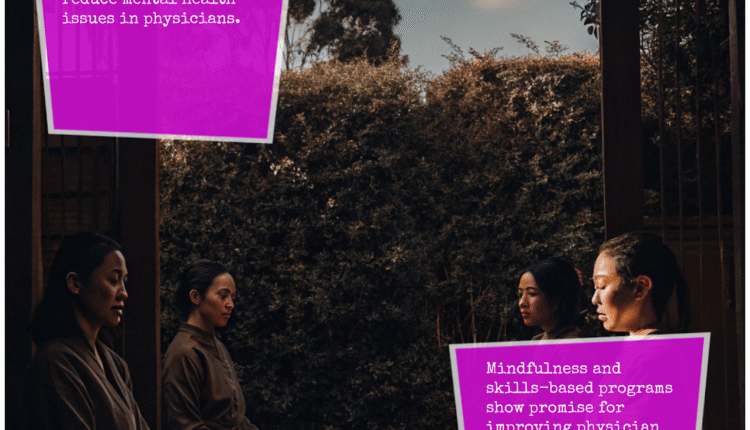Effective Strategies for Physician Mental Health
In recent years, there’s been a growing recognition of mental health challenges faced by physicians. Studies have shown that doctors have higher rates of depression and anxiety compared to other professional groups. It’s not just about the symptoms of depression or anxiety, but the risk of more severe outcomes, such as suicidality, is alarmingly higher in the medical profession.
A comprehensive review and analysis of existing research aimed to tackle this issue by exploring effective interventions to reduce these mental health burdens among physicians. With medical professionals being at the frontline, especially during events like the COVID-19 pandemic, the mental health risks have amplified. The pandemic period highlighted an increased need to deepen our understanding of how depression and anxiety manifest and can be mitigated among these essential workers.
In this research, over 24 studies were scrutinized, comprising interventions directed at physicians. These interventions were either universal or specifically targeted those with heightened vulnerability. The effectiveness of these interventions was gauged not just immediately after their implementation but also in the long term.
One of the key findings of the study was the positive impact of group-based, face-to-face interventions. Programs that foster interpersonal skills and emotional resilience, thus tackling the early signs and symptoms of depression, were notably beneficial. Techniques such as mindfulness-based stress reduction (MBSR) and mind-body approaches, which have been quite popular as natural remedies for depression, proved effective when integrated into medical settings.
The study emphasized the crucial role of skills-based interventions like Cognitive Behavioral Therapy (CBT) and stress management programs. Unlike psychoeducational programs, which did not show significant benefits, these active participation approaches demonstrated moderate effectiveness in reducing stress and anxiety symptoms. This makes such methodologies some of the best therapy options for depression, particularly in professional contexts where high stress is a norm.
However, the analysis also identified critical gaps, particularly regarding interventions at the organizational level. While individual-focused strategies are beneficial, the absence of systemic organizational interventions is concerning. Healthcare institutions must prioritize creating supportive environments, considering the organizational stressors that contribute to mental health challenges.
Moreover, the review called attention to the need for continued research to develop these organizational-level interventions, which are not only scalable but also sustainable. The challenge remains in making these interventions accessible and adaptable to fit within the various institutional settings without compromising their effectiveness.
The findings contribute significantly to understanding how to help someone with depression in demanding professions. For healthcare organizations, these insights underline why investment in mental health resources should be a priority. Addressing these issues is not just beneficial for the physicians’ well-being but can significantly impact the quality of patient care and the healthcare system’s efficiency as a whole.
In moving forward, the healthcare field must focus on establishing comprehensive mental health support systems. Incorporating regular screenings for symptoms of depression and anxiety and providing prompt access to evidence-based interventions are essential steps. Collaborative efforts between healthcare institutions, policymakers, and mental health experts will be vital in crafting and implementing these systemic interventions.
The study demonstrates an urgent call to action: healthcare institutions must recognize and tackle the mental health burdens of those who provide care. As the discourse on mental health continues to expand, it’s crucial to ensure that the strategies employed are both evidence-based and dynamically responsive to the unique needs of this high-risk group.

